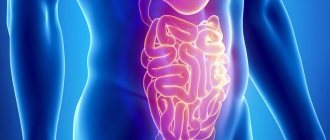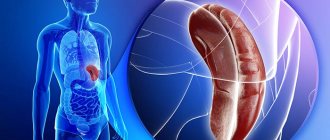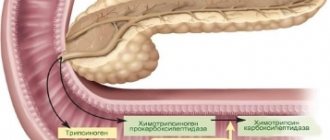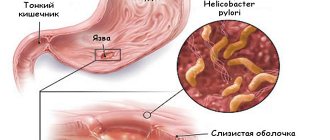Causes of the unpleasant condition
The main causes of nausea, diarrhea and weakness include:
- Taking drugs or alcoholic beverages. Dependence on drugs and alcohol irreversibly leads to the destruction of human systems and organs. Bad habits reduce the body's immune system. In addition, alcohol and drug use leads to additional symptoms: constipation, nausea, and bad breath. Intoxication provokes disruption of the functioning of the gastrointestinal tract. Under the influence of harmful substances, the tissues of the abdominal cavity begin to weaken, beneficial substances are poorly absorbed into the intestines, resulting in constipation. Often adults experience diarrhea after drinking large amounts of alcohol (this especially applies to beer and various alcoholic cocktails).
- Poor nutrition. The modern rhythm of life to which people are accustomed does not allow them to eat normally, since there is very little time left for preparing proper food and healthy rest. People prefer to spend most of their time at work, doing business, resolving issues, so they pay almost no attention to a proper diet. Over time, this lifestyle begins to cause severe harm to the organs of the digestive system: gastrointestinal disorders, as well as other diseases, may occur. If food does not penetrate the stomach in a timely manner, and hydrochloric acid begins to corrode its walls, this leads to heartburn and vomiting.
- Stress can also cause vomiting, nausea, diarrhea, weakness and fever in an adult. Emotional overload, stress during the day, depression can provoke unpleasant symptoms. In this case, nausea, pain in the dorsal region, bloating, and heartburn often appear. Excessive worries lead to cramps in the stomach. Frequent experiences as a result can lead to serious health problems and even diseases, for example, ulcers.
- Eating excessive amounts of junk food. Food products sold in any store include large amounts of carbohydrates and salt. Any type of fast food can be classified as such food - there is almost nothing useful for the human body in it. Regular consumption of this type of food leads to problems with the gastrointestinal tract: diarrhea, bad breath, heartburn, dysbiosis. It has been proven that eating fast food in large quantities results in obesity, a feeling of drowsiness even with proper rest, and dementia.
- Abdominal pain, nausea, diarrhea, weakness and dizziness as a result of taking medications. It is important to carry out the course of taking medications, especially those with strong effects, strictly, following the prescriptions of the attending physician. It is forbidden to change the dosage on your own and use medications for longer than the prescribed period. When the first unpleasant symptoms appear, it is important to immediately see a doctor. When taking strong medications, the patient may experience side effects such as the onset of vomiting, an increase in acidity in the stomach, which will be difficult to reduce with simple medications. To get rid of the malaise, experts recommend stopping taking antibiotics. In some cases, along with high acidity, the patient’s temperature rises.
What diseases can occur with nausea and diarrhea without fever?
Vomiting and diarrhea without fever can cause the following pathologies:
- Pathogenic microorganisms. Penetrate into the intestines along with foods that are poorly processed before consumption. During their life processes, toxins are formed, which cause poisoning.
- Rotavirus flu. Intestinal flu is typical for those people who already have digestive problems, and an additional portion of bacteria from poor-quality food serves as a trigger for the development of infection.
- Viral hepatitis. The normal functioning of the gastrointestinal tract is disrupted. The patient experiences constant fatigue, abdominal pain and an urge to go to the toilet. The urine becomes dark in color and the stool turns white. In this case, the skin and whites of the eyes become yellow.
- Gastritis. Gastritis is often preceded by indigestion and a nausea reflex. Inflamed intestinal mucous membranes react very sharply to any external influence.
- Stomach ulcer. Inflammation of the gastric mucosa also negatively affects the patient’s well-being. Painful symptoms in the gastrointestinal tract, constant urge to go to the toilet and nausea haunt the patient quite often.
- Pancreatitis. Often the pancreas becomes inflamed and affects all nearby organs and systems. Negative symptoms appear throughout the entire period of exacerbation of this disease, so the sick person needs immediate help.
- Cholera. When drinking low-quality raw water, pathogenic microorganisms enter the body.
Reference Information! In the intestines, pathogenic bacteria actively begin to secrete exotoxin, which provokes loose stools and attacks of nausea followed by vomiting. In this case, the patient does not have a temperature, and there are also no other pain symptoms.
- Acetone. Due to the increased concentration of this substance in the blood, the body responds in the form of an attempt to get rid of the foreign element in the body. The person begins to feel dizzy and vomit repeatedly. If this reaction is not enough for the body, the intestines begin to actively contract and the patient begins to have loose bowel movements.
- Escherichosis. Pathogenic organisms entering the intestines can cause intestinal infections. In order to get rid of bacteria, the body is forced to actively get rid of those products with which these bacteria entered the body.
- Changes in habitual climatic conditions, sudden changes in diet, stressful situations, food allergic reactions to an unfamiliar food product.
- Medicines and supplements. Long-term use of antibiotics or food additives, as well as various sugar substitutes, causes a negative reaction from the gastrointestinal tract, disrupting the normal functioning of the intestinal microflora and preventing the full absorption of nutrients into the blood.
Prevention measures
The main factor in the prevention of nausea, diarrhea, headaches and weakness is following the rules of personal hygiene.
These include:
- It is forbidden to drink raw water from the tap or from a well on the site;
- It is important to wash fruits and vegetables thoroughly before eating;
- drinks and food should be protected from insects by covering them with something.
At the end of a meal, it is forbidden to leave unwashed dishes in the sink, and it is also recommended to remove all crumbs from the table. It is important to install a special lid on the trash can and take it out every day.
Do you still think that healing your stomach and intestines is difficult?
Judging by the fact that you are now reading these lines, victory in the fight against diseases of the gastrointestinal tract is not yet on your side...
Have you already thought about surgery? This is understandable, because the stomach is a very important organ, and its proper functioning is the key to health and well-being. Frequent abdominal pain, heartburn, bloating, belching, nausea, bowel dysfunction... All these symptoms are familiar to you firsthand.
But perhaps it would be more correct to treat not the effect, but the cause? Here is the story of Galina Savina, about how she got rid of all these unpleasant symptoms... Read the article >>>
Abdominal pain, vomiting, the urge to defecate, all this is characteristic of a disorder of the gastrointestinal tract. If you are concerned about these symptoms, find out how to get rid of the disease in this article.
Possible diseases
Particularly dangerous causes of the appearance of the described symptoms include various diseases that require timely diagnosis and treatment. These include:
- Enteroviral infection. With the intestinal form of the disease, the patient has diarrhea, severe abdominal pain, increased gas formation, and nausea. Indicators of body intoxication are moderate. In newborn children, the disease occurs with catarrhal manifestations in the nasopharynx.
- Difficulties in bowel function. Such disorders can lead to premature satiety syndrome. In this case, the patient indicates the presence of nausea, diarrhea, headache and weakness. Rapid satiety syndrome appears as a result of a decrease in general tone and functioning of only one part of the stomach. The patient's intake of even small portions of food leads to a pulling sensation in the lower abdomen and a quick feeling of fullness.
- The appearance of a hernia. The main symptom of a hernia in the esophagus is belching. Due to food and gastric juice getting into the esophageal mucosa, the belching becomes bitter or sour. Patients sometimes experience heartburn, which appears mainly when playing sports, overeating, or drinking alcohol. Anemia and pain in the presence of a hernia indicate that bleeding has opened inside the esophagus. In this case, when analyzing the patient's feces, the doctor detects an admixture of blood.
Causes of symptoms in adults
Weakness, nausea, vomiting and diarrhea without fever in adults can occur for a number of reasons and last from one to several days.
Having information about what to do when such symptoms appear, you can always avoid serious health problems, complications and dangerous consequences.
Factors that cause weakness, nausea, vomiting or diarrhea during the day without fever include:
- food poisoning with a low degree of intoxication of the body, causing the manifestation of symptoms within three days;
- rotavirus infection of the body of an adult, which causes weakness, nausea, diarrhea, vomiting without fever;
- pathological condition of the gastrointestinal tract, which determines the diagnosis of pancreatitis, gastritis, enterocolitis, cholecystitis, intestinal dysbiosis, stomach ulcers;
- nervous stress and other psycho-emotional disorders that in a sensitive adult during the first and subsequent days cause a reaction such as nausea, diarrhea, vomiting;
- problems with the functioning of the endocrine system.
Knowing what needs to be done when such a clinical picture appears without fever, you can quickly eliminate it without the subsequent development of complications.
Gastritis and ulcer
Vomiting, diarrhea and weakness of the body with gastritis can occur together with pain in the abdomen, sour belching, and bitterness in the mouth. In this case, treatment for vomiting and diarrhea should begin immediately after getting rid of the root causes of the disease. In the presence of biliary reflux gastritis, the patient informs the doctor about severe abdominal pain, belching, intestinal disorders, complete or partial lack of appetite.
In some cases, severe bleeding occurs, in which the patient vomits blood. The fecal matter may contain blood and be tarry in color. The occult blood test is most often positive. The main symptom that indicates the presence of such gastritis is vomiting with bile. Due to impaired bowel movements, nausea and vomiting plague the patient in the morning and evening.
If an ulcer is present, the patient experiences corresponding unpleasant symptoms. Before heartburn, the patient may feel slightly unwell after eating. Severe nagging pain begins in the abdominal area. In addition, vomiting and belching may begin.
Causes
Nausea is often accompanied by weakness (photo: plushealth.ru)
Not always having felt bad, a person can describe what exactly is happening to him and how he feels. After all, there is no clear localization of pain, and the temperature is normal. Therefore, many people delay seeing a doctor, believing that the unpleasant sensations will go away on their own, without outside intervention. In some cases this is exactly what happens, but not always.
Unlike a pronounced pain symptom, which has a clear localization and character (burning, shooting, sharp or dull pain), aches and pains are not so indicative. Anything can break: bones, joints, muscles, soft tissues. The only thing that cannot be characterized by the patient as “ache” is, perhaps, a headache or migraine, as well as pain in the abdominal area. My stomach can't hurt. This area is characterized by completely different types of pain.
Aches can be felt in the lower or upper extremities, spine, or throughout the body. This condition is extremely unpleasant for a person, it can cause irritation, affect performance, and even lead to the impossibility of full-fledged work. The patient may complain that it is difficult for him to even get out of bed, the whole body seems to be twisted, aching, severe weakness, chills, and nausea are felt. The first thing a person does in such a state is to automatically take out a thermometer to measure the temperature, because the listed symptoms quite often occur with diseases such as a common cold or acute respiratory viral infection.
Body aches, diarrhea, vomiting, weakness, but without an increase in temperature - such symptoms often occur separately or together with other manifestations against the background of the following diseases or conditions:
- as a result of intense physical activity, in the morning after training, doing hard work;
- after severe injuries - bruises, sprains, blows;
- as a result of the action of viruses and pathogenic microorganisms in a number of infectious diseases;
- during inflammatory processes in the body;
- when bitten by insects, ticks, bees (the presence of an allergic reaction);
- for blood diseases, including leukemia, lymphoma, etc.;
- for any types of malignant tumors;
- against the background of any intoxication, including food poisoning, as well as caused by taking medications, poisons, etc.;
- for joint diseases - rheumatism, arthritis, arthrosis, osteochondrosis;
- as the first symptom of developing botulism;
- as a sign of immunodeficiency caused by various reasons;
- myositis caused by infectious diseases, injuries, hypothermia;
- for fibromyalgia;
- pregnancy, hormonal changes, early toxicosis;
- herpes virus;
- with vasculitis;
- for a number of endocrinological diseases, including diabetes mellitus, hypo- and hyperthyroidism or other disorders of the thyroid gland;
- for collagenosis;
- as a concomitant symptom of a number of autoimmune diseases.
If we are talking about inflammatory processes, then aches and pains are very typical for them. With the active reproduction of pathogenic organisms, acute or chronic (depending on the form of the disease) intoxication occurs. Toxins or breakdown products begin to destroy the cell in which they are located, leading to its death. Cell destruction is accompanied by irritation of pain receptors that send a signal to the brain. The number of cells may be small, and their position may be scattered, since intoxication affects the entire body, and not its individual parts. The breakdown products then spread throughout the circulatory and lymphatic systems. For this reason, a person cannot determine the location of the pain, complaining of aches in the body - muscles or joints.
Body aches and weakness combined with other symptoms
Signs of nausea, body aches and weakness (photo: zhkt.guru)
Nausea, deterioration in general health and body aches may be accompanied by other symptoms, which manifest themselves to a greater or lesser extent and are permanent or temporary. You should definitely inform your doctor about their presence when seeking medical help.
Vomiting and nausea as signs of intoxication
Nausea and vomiting may occur against a background of general weakness and body aches. Vomiting, especially repeated, is not just an extremely unpleasant phenomenon, but also a serious symptom that indicates intoxication, which can occur for various reasons:
- food poisoning;
- drug poisoning, adverse reactions to substances included in the pharmaceutical product;
- effect on the body of viruses and other pathogens.
Whatever the cause of vomiting, it is better to seek qualified medical help. If you suspect the possibility of food poisoning, you can take absorbents and provide the patient with plenty of fluids to prevent dehydration. Drinking plenty of fluids is recommended for any type of intoxication, both in conditions caused by a viral infection and in case of drug poisoning.
Rotavirus infection
Rotavirus infection, otherwise known as intestinal or stomach flu, most often occurs during the summer months. It is at this time that viruses that can cause disease are especially active. There is an extremely high probability of infection near bodies of water, when traveling to the sea, or on vacation in hot countries. The symptoms of rotavirus infection are extremely similar to those of food poisoning:
- nausea and repeated vomiting;
- diarrhea;
- weakness, dizziness;
- body aches.
The temperature may remain normal at first, but with the development of acute intoxication it necessarily rises to 37-38 degrees Celsius. If you suspect rotavirus (for example, if one of your family members has just had this disease), you should not ignore such manifestations. It is necessary to take antiviral drugs and sorbents that can rid the body of the resulting intoxication. In addition, the patient is required to drink plenty of fluids.
Important! Signs of food poisoning and rotavirus infection can easily be confused with symptoms of botulism, a very dangerous disease that requires timely medical intervention. Therefore, if you feel unwell, it is better not to self-medicate and contact a specialist without delay.
Colds
If the day before there was severe hypothermia: you were frozen on the street or at work, aches throughout the body and weakness are quite understandable. There are all the signs of an incipient cold on the face. Over time, symptoms quite typical for acute respiratory infections may be added:
- runny nose;
- sore throat;
- headache.
Temperature with acute respiratory infections usually occurs later or can even remain within the normal range if the cold is not severe and the body can easily cope with the load. Unlike acute respiratory infections, acute respiratory viral infections cause a high temperature before other symptoms appear. However, even in this case, the first thing the patient will notice is weakness, dizziness, body aches and lightheadedness. In addition to acute respiratory infections and acute respiratory viral infections, weakness can be caused by any diseases of the ENT organs and respiratory tract, tonsillitis, laryngitis and chronic bronchitis.
Chronic inflammatory processes and latent forms of the disease
If the body has a disease that occurs in a chronic form or a sluggish inflammatory process, you are guaranteed weakness and body aches. An exacerbation of the disease is accompanied by pronounced symptoms such as pain, high body temperature, chills or fever. This is quite explainable by acute intoxication and the inflammatory process. As for the “quiet” periods, a sluggish inflammatory process occurs here. Toxins enter the blood in smaller quantities, but for a long time. A person is no longer so tormented by pain, which may be completely absent, depending on the type of disease. However, health is not always good.
This is also typical for diseases that occur in a latent form. Many diseases that do not manifest clear symptoms literally poison a person’s life for a long time with periodic attacks of weakness, nausea, aches in the muscles and joints. At the same time, he may not have any pain, his body temperature may not rise. If the examination is carried out in time, the disease will be detected. The absence of severe symptoms does not mean that the disease does not need to be treated. The infection may well spread to other organs, cause an acute inflammatory process, and lead to serious disorders. In addition, chronic intoxication is a serious blow to the immune system, causing irritability, insomnia or nightmares, and deterioration in appearance. Along with poor health and weakness, a person may notice that his complexion has changed, his skin has acquired a characteristic earthy tint, rashes have appeared, and his hair has become dull. Often, against the background of chronic infectious diseases, patients have a decreased appetite, they are tormented by depression and there is weather dependence.
As a sign of pregnancy
If causeless weakness, body aches and nausea, or even vomiting occurs in a woman of reproductive age, the condition does not worsen, but does not improve for several days - the first thing you should think about is the possible occurrence of pregnancy. Such symptoms are very typical for early toxicosis, which can begin simultaneously with the delay of the next menstruation, after the sixth or eighth week of pregnancy, or not begin at all, depending on the individual characteristics of the woman’s body.
Already in the fifth or sixth week, a pregnant woman may begin to feel nauseous, and may experience weakness and high fatigue when performing habitual work that was previously easy. A pregnancy test, which can be purchased at any pharmacy or a visit to a gynecologist, will help clarify the situation. You should not delay the latter, since a strong deterioration in well-being may indicate the presence of pathology or an ectopic pregnancy.
Parasitic infestations
Parasitology is a separate branch of medicine. Foreign biological substances live for years in the human body, skillfully masquerading as many diseases and pathological conditions. Often the patient seeks medical help and comes for diagnosis with very “vague” and unclear symptoms: weakness, fatigue, headaches and dizziness, nausea, possible diarrhea, body aches. An increase in temperature is not a characteristic symptom, which occurs only in rare and advanced cases.
Pancreatitis and cholecystitis
Bile can be easily detected in the vomit of pancreatitis. In addition to vomiting, the patient also experiences additional symptoms of the lesion: pain, fatigue and general weakness of the body. During exacerbation of pancreatitis, it is undesirable to eat food, so as not to provoke vomiting with bile. A diet correctly prepared by a doctor is the main factor that will help cope with the disease and improve the patient’s condition.
With cholecystitis, the patient develops a characteristic bitterness in the mouth, a metallic taste, vomiting and belching. In addition, severe pain develops in the abdominal area, stool is disrupted, and increased gas formation appears. Diarrhea and constipation often alternate. With cholecystitis, loose, foamy stools often occur. A sick patient may be particularly aggressive and often complain of difficulty sleeping.
Possible reasons
The choice of treatment method depends entirely on the factor influencing the occurrence of symptoms.
Food poisoning
The most common cause of diarrhea without fever in adults and children. It is a consequence of eating food that has expired or has improper storage conditions. Symptoms of poisoning appear within 1–3 days and resolve individually for each person. Some people experience vomiting and diarrhea without fever. Others develop fever and fever.
If such symptoms occur, the patient needs to increase the amount of water in the daily diet and exclude the spoiled product from meals.
Stress, neurotic state
The occurrence of loose stools against a background of general weakness may indicate nervous excitement or a stressful state of the body. As a rule, this is accompanied by a headache.
In this case, the person may not feel any signs of fear or anxiety. The body, reacting in this way, copes with the load on the nervous system. If this condition occurs frequently, then this is a reason to consult a doctor.
Stomach flu
Symptoms of this disease also include diarrhea and vomiting. In some cases, there is no elevated temperature. The condition is accompanied by sore throat, weakness, runny nose and lack of appetite. This disease must be treated only by a doctor, as it is easily transmitted by airborne droplets.
Diseases of the gastrointestinal tract
If diarrhea without fever lasts more than 5 days, this indicates possible problems with the intestines. It could be:
- Pancreatitis, which also causes pain in the abdomen and a persistent feeling of nausea.
- Stomach ulcer, gastritis. Additional symptoms: bloating, heartburn, high or low blood pressure.
- Enterocolitis, in which mucus and traces of blood may be present in the stool.
- Gastroduodenitis. Accompanied by an unpleasant taste in the mouth, decreased appetite and a feeling of fullness in the stomach.
If all signs of the disease do not go away within 3 days, then you should urgently consult a gastroenterologist.
Dysbacteriosis
Long-term use of medications can also cause diarrhea and vomiting. Most often they occur after a course of antibiotics, immunostimulating drugs, or when choosing the wrong pills on your own.
Taking two or more medications together can also cause dysbiosis. In this case, you need to consult a doctor who will prescribe normalization of the intestinal microflora.
Other reasons
Diarrhea without fever can also be caused by:
- change of climate or time zone;
- pregnancy;
- overeating, especially typical on holidays;
- large amounts of alcohol;
- allergic reaction to products;
- the presence of parasites in the body, which can only be determined by a doctor.
If there is no temperature
Nausea, diarrhea, vomiting, headache, weakness without fever - a rare condition in medical practice. If the patient vomits, has headaches and lacks coordination, these may be signs of vertigo. Vertigo refers to the manifestation of various neurological diseases. At the same time, there is no increase in body temperature in adults and children.
Immediately after the first unpleasant symptoms appear, it is important to contact your doctor. In this case, trying to normalize the condition yourself at home is prohibited. Such symptoms can be dangerous and indicate some serious illness. Incorrect treatment can lead to complications.
Help at home can only be provided when the cause of such a condition is precisely determined. But in any situation, taking medications of your choice is unacceptable, since their effect can change the overall clinical picture and it will be difficult for the doctor to determine what is actually happening to the patient.
Treatment methods
When unpleasant symptoms appear, it is very important to take action immediately, otherwise there is a risk of dangerous consequences. One of them may be serious dehydration of the body. Treatment should consist of the following:
- On the first day you need to completely eliminate food intake.
- It is very important to provide the patient with plenty of fluids. Preference should be given to ordinary boiled water with rehydron. You can also drink mineral water without gas.
- If food poisoning is suspected, cleanse the stomach.
- The patient can be given activated charcoal.
- If a person's condition does not improve, they should immediately consult a doctor.
Note to parents. If severe weakness, nausea, diarrhea, or high fever occurs in a child, you should immediately call an ambulance. The specialist will be able to assess the baby’s condition and, if necessary, hospitalize him in the infectious diseases hospital.
The appearance of general weakness, stool disturbances and nausea can be a symptom of a variety of pathologies. To make an accurate diagnosis and begin proper therapy, you should consult a doctor in a timely manner.
Therapeutic measures
If poisoning of the body occurs, the patient should immediately rinse the stomach with a weak solution of potassium permanganate and water. If you have vomiting, nausea, diarrhea and weakness without fever, it is recommended to take Smecta, Regidron or any sorbent. If the patient suffers from vomiting, then he is prohibited from eating food for some time. Experts recommend drinking a little water or sucking on pieces of ice every fifteen minutes. Afterwards, you need to follow a proper diet without spicy and fatty foods, which can provoke inflammatory processes in the mucous membrane.
The most important thing during treatment is to drink as much clean water as possible. For a quick recovery, the recommended amount is 2 liters of water, otherwise dehydration will occur. Water is important because nausea and vomiting strongly empty the stomach, removing fluid and causing thinning of the organ walls. To get rid of pain, in this case you need to take antispasmodics.
When to Call Emergency Help
Poisoning can be mild, which can be treated at home, or severe, which will require immediate medical attention.
It is necessary to call an ambulance if the patient has the following symptoms:
convulsions; fainting; pain when going to the toilet; constant incessant vomiting. cardiopalmus; constant thirst and dry skin; low pressure; profuse and frequent diarrhea with pain; chapped lips.
The presence of even one of these signs is the reason for calling an ambulance. Before her arrival, it is necessary to rinse the patient’s stomach and provoke an attack of vomiting. He also needs to be given plenty of water and ensure peace.
Taking medications
If negative symptoms do not go away for a long time, then the patient begins to develop toxic damage, which requires urgent medical attention. After a thorough diagnosis, the specialist will prescribe effective antimicrobial medications. At the end of antibacterial therapy, a course of restoration of intestinal microflora is carried out to get rid of dysbacteriosis.
You should start taking medications immediately after stool normalization. The drugs will improve digestion and restore the functioning of the body as a whole.
If you experience vomiting and diarrhea, when your temperature rises and headaches begin at the same time, you should definitely seek help from a doctor. Before the doctor arrives, to try to reduce the temperature, you should take Aspirin, Paracetamol, Analgin, Citramon or Indomethacin. The following remedies help with diarrhea: Diclofenac and Levomycetin.
Treatment of the condition
To stop diarrhea, medications from the following pharmacological groups are used:
Antidiarrheal:
- Loperamide is a drug that binds to opiate receptors, causing their stimulation and biological response.
- Probiotics: Linex, Bifiform, Lactobacterin and other drugs that affect the bacterial composition of the large intestine.
- Plants: St. John's wort, blueberries, bird cherry, celandine root, chestnut fruits.
Antiemetic drugs:
- M-anticholinergics: Scapolamine hydrobromide (Aeron).
- Dopamine receptor blockers: Metoclopramide (Cerucal), Domperidone (block dopamine and serotonin (in large doses) receptors of the trigger zone of the vomiting center in the medulla oblongata).
Enveloping agents and astringents.
Traditional methods can help in some situations to effectively eliminate this problem at home:
- For the recipe you will need to take peppermint leaves. They are crushed and 100 g of water is poured into two tablespoons. Bring to a boil, remove from heat and allow to brew and cool. Then they filter. Allows you to effectively eliminate the feeling of nausea. Drink as needed.
- Strong unsweetened black tea and ammonia vapor can help with nausea and vomiting.
- Add 10 grams of cinnamon to 200 ml of water and bring to a boil. Boil the cinnamon for 15-20 minutes, remove and cool. Then add one tablespoon of honey there. The drug is taken orally in small sips during an attack of nausea.
Lemon and its juice are often used. You can mix it with honey or add it to boiled water and drink it during nausea.
The following recipes will help treat diarrhea:
Recipe No. 1 : Rye bread. To prepare, you will need to take dry rye bread, pour boiling water over it and leave to brew for a third of an hour. Then you need to mix well and drink.
Recipe No. 2 : Young walnuts. It is optimal to collect them at the beginning of summer. For the recipe, take 18-20 nuts. They are not peeled, washed, and finely chopped. Place in a liter jar and fill with half a liter of vodka or alcohol. The jar is tightly closed and placed in the dark for 14 days. The storage location should be cool. After this, the tincture is poured into another container, preferably made of dark glass. Be sure to filter. Take 1 tablespoon three times a day after meals. Allows you to effectively get rid of loose stools.
An effective method is rice. To do this, it is digested. You can only drink water from it or eat the rice porridge itself.
In case of food poisoning, the digestive canal should be cleaned of toxic substances as soon as possible. To do this, gastric lavage and an enema are performed at home. The stomach should be rinsed with water in a volume of up to 8 liters. For an antibacterial effect, the procedure is carried out with a slightly pinkish solution of potassium permanganate.
It is advisable to take activated carbon. It adsorbs many toxic substances, reduces gas formation, and the feeling of churning in the stomach will disappear.
If the onset is caused by a bacterial infection, treatment with antibiotics is mandatory.
If fever occurs, antipyretics can be used.
If you experience a high fever and vomiting with uncontrollable diarrhea, you should immediately seek help from a doctor!
Restoration of the body
After getting rid of the main cause of the illness, the attending physician advises patients to follow a dietary diet for some time. In the first days of treatment, it is best to consume the following foods:
- boiled rice;
- oatmeal;
- rosehip decoction;
- lean crackers;
- strong tea without sugar;
- dried fruits compote.
There are a number of products that are strictly prohibited to take after recovery:
- smoked meats;
- meat;
- fresh fruits and vegetables;
- salty and fatty foods;
- sweets and confectionery;
- dairy products;
- pizza and fast food.
If diarrhea is combined with other unpleasant symptoms, then many foods should be excluded.
On the second day, you should boil the porridge or vegetables. You can start eating your usual food only on the third day. It is also recommended to additionally take enzyme-containing products at this time.
A decoction of chamomile or oak bark will help restore a person’s condition. Such remedies eliminate inflammatory processes.
Improving well-being in adults and young children
Eliminating the symptoms of pathological conditions in an adult or infant begins with identifying the causes that led to the appearance of nausea, vomiting, and diarrhea without fever. If such a situation is caused by poisoning or nervous shock, then a number of activities that can be done at home will help improve your well-being and avoid hospitalization. Treatment during the day does not require much effort.
Essential measures include:
- Ensure rest and proper rest, you should not do any physical work.
- Maintaining a water regime during the day, based on frequent consumption of small portions of still water, Regidron, Smecta, dried fruit compote without sugar, herbal decoctions, the volume of which ranges from 5 to 250 cm³.
- Gastric lavage in adults if an intestinal infection is suspected, which must be done with great care to avoid injury to the mucous membrane of the esophagus.
- Exclusion from the nutritional diet of an adult of harmful fatty, salty, smoked foods and new complementary foods for infants.
- Carrying out drug therapy based on the intake of enterosobents, antibacterial, antiviral, anti-inflammatory drugs, probiotics.
- Performing enemas, which need to be done using herbal decoctions, ordinary boiled water, and a weak solution of potassium permanganate for 2-3 days.
- Providing fractional meals.
Diarrhea and vomiting in an adult without fever are symptoms of impaired functioning of the gastrointestinal tract. They can occur against the background of internal diseases, infection of the body or experienced stress. This article will look at how to get rid of this condition and prevent discomfort in the future.
Diarrhea and vomiting in an adult without fever
Diagnosis of the patient
If there is bile and blood in the feces or vomit, it is important to consult a doctor - he will prescribe tests and, if necessary, refer you to a specialist. To accurately determine the source of pain and the cause of deterioration, a specialist must palpate and prescribe an ultrasound examination of the abdominal cavity.
A proctologist will be able to determine the source of the hemorrhage after a series of examinations. For this purpose, rectoscopy is used, which makes it possible to diagnose the condition of the abdominal region. With the help of such an examination, the doctor determines the presence of cracks, hemorrhoids and various formations in the organ. When performing a colonoscopy, an endoscopic examination is prescribed, which helps to determine all the ongoing pathological processes and dangerous changes in the intestines.
Associated symptoms
When gag reflexes and diarrhea occur, symptoms may appear that indicate the development of pathological processes in the human body:
- dry and rough skin;
- formation of cracks on the lips and corners of the mouth;
- constant unquenchable thirst;
- fatigue, apathy, depression;
- problems with urination and bowel movements;
- pain during bowel movements;
- cardiopalmus;
- weight loss;
- violation of water-salt metabolism;
- convulsions;
- loss of consciousness.
A lack of potassium and magnesium in the body can also lead to problems with the gastrointestinal tract. Therefore, the daily diet should contain foods enriched with these substances.
If the above symptoms are observed for three or more days, it is necessary to undergo examinations and identify their exact cause
What should you not eat or drink if you have vomiting or diarrhea?
Some foods can aggravate the patient's serious condition, so they should not be taken during the period of gastrointestinal problems.
- Fried meat and fish. They can irritate the intestinal mucosa. You will also have to give up pickled, salted and smoked foods.
- Raw fruits and vegetables. They contain a lot of fiber and plant fibers, which stimulate the functioning of the gastrointestinal tract.
- Black bread. This product is an intestinal irritant.
- Confectionery. Due to their high sugar content, they can cause discomfort in the gastrointestinal tract, which can lead to increased vomiting or diarrhea.
- Milk. Dairy products speed up the movement of stool in the intestines, so taking them may make the condition worse.
- Spicy dishes. Aromatic spices, which are used abundantly in their preparation, in addition to stimulating the appetite, can stimulate intestinal function. This worsens the patient's general condition, increasing nausea and diarrhea.
- Carbonated drinks contain large amounts of sugar and carbon dioxide, which contribute to fermentation processes in the gastrointestinal tract, which also leads to irritation. In this case, the intestinal mucous membranes are severely affected.
It is not recommended to drink fermented milk products, as they only help the disease develop
Diagnostic methods
When you contact a doctor, a diagnostic examination will be prescribed to determine the causes of the above symptoms.
Table 1. Diagnostic procedures
| Name | Description of the method |
| Palpation | The doctor examines the patient's abdominal area with his fingers. At the same time, the nature of the pain that occurs during this stage of the examination is determined, on the basis of which a preliminary diagnosis is made. To clarify it, standard tests of blood, urine and feces are prescribed. |
| Coprogram | This diagnostic method helps determine the presence of infections, their type and specific pathogens. Stool samples are also examined for the presence of parasites. It is known that the causes of diarrhea and vomiting can be roundworms, lamblia and pinworms, which easily enter the body with low-quality or unprocessed food, from dirty hands and other sources. In deciphering the coprogram, the density and appearance of feces, coloring, the presence of a specific odor, particles of undigested food and various discharges (purulent, bloody) are analyzed. |
| Hydrogen breath test | Using this diagnostic method, a specialist can obtain information about the presence of bacteria, malabsorption of minerals and nutrients, as well as the prevalence of bacteria in the small intestine. |
| Colonoscopy | The examination is carried out using a fibrocolonoscope, and the inner surface of the intestine is examined up to the colon. The device is inserted through the rectum. |
| Esophagogastroduodenoscopy (EGDS) | Using this method, a detailed examination of the internal linings of the esophagus, stomach, and duodenum is performed. The study is carried out using a gastroscope inserted into the esophagus through the oral cavity. |
| Ultrasound examination (ultrasound). | This diagnostic method allows a specialist to give an objective assessment of the condition of the gastrointestinal tract and determine the presence of pathological processes that caused diarrhea and vomiting. |
| Irrigoscopy | This diagnostic method is intended for a detailed examination of the colon. The doctor receives images that clearly show defects in the mucous membranes. The results of irrigoscopy completely eliminate the chance of medical error. |
| Sigmoidoscopy | The diagnostic method is aimed at examining the rectum and sigmoid colon. Using a sigmoidoscope, pathologies such as tumors, fissures, polyps and hemorrhoids are detected, which can also cause diarrhea. |
Sometimes one diagnostic method is enough to determine the cause of the pathological condition. In more complex cases, a series of examinations are prescribed to make an accurate diagnosis.











